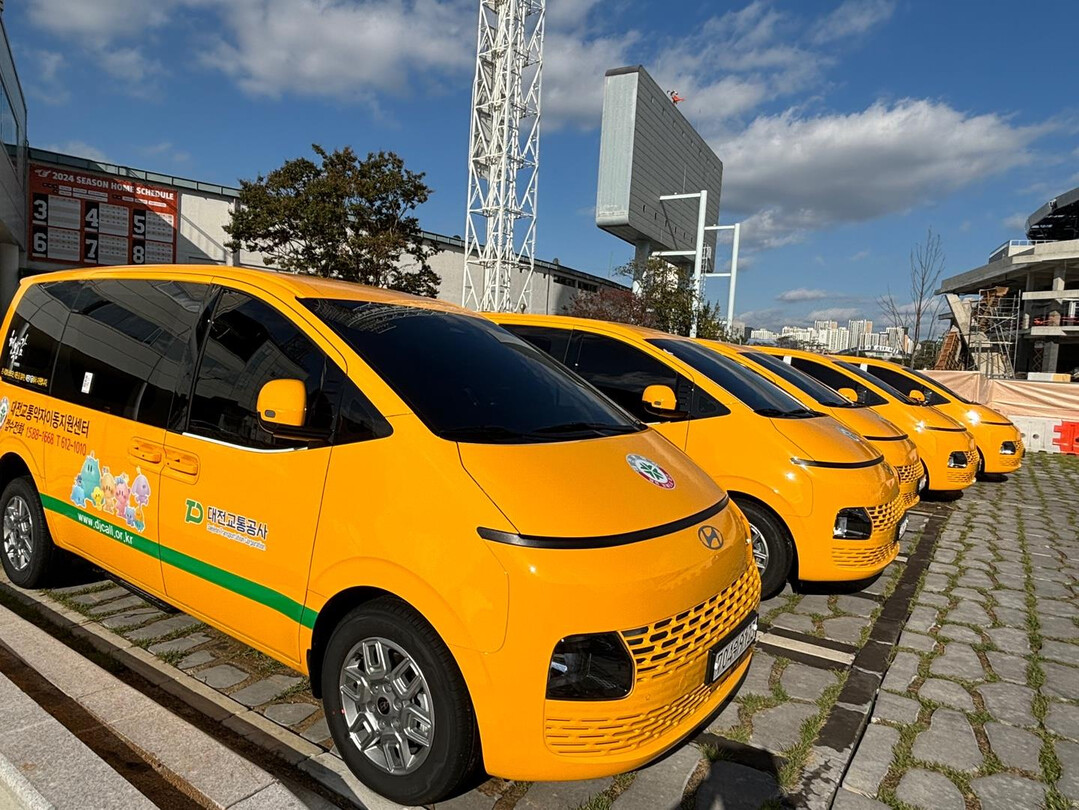
Daejeon, May 30, 2025 – Daejeon City's 'Sarangnanum Call', a mobility support service for the transportation vulnerable, will officially launch its service on May 26th, integrated with the Kakao T app. This marks the nation's first instance of a public service combining with a private mobility platform, and it is expected to significantly enhance mobility convenience for the transportation vulnerable.
Previously, 'Sarangnanum Call' could only be accessed via phone calls or a separate public app, limiting its accessibility. However, by enabling direct calls through the Kakao T app, which is used by the majority of the population, transportation vulnerable individuals such as the elderly and disabled can now access vehicles more easily and conveniently.
A Model Case of Public-Private Cooperation
This service integration was promoted as part of the 'People-Centered Private Innovation Project', led by the Digital Platform Government Committee and the Ministry of Science and ICT, and operated by the National Information Society Agency (NIA). Daejeon City, in close cooperation with the Transportation Vulnerable Mobility Support Center, mobility solution specialist Konatus, and Kakao Mobility, completed system stabilization after pilot operations since March.
Each organization generated synergy through clear role divisions. Daejeon City oversaw service operations and policy support, while Kakao Mobility implemented the function to call Sarangnanum Call vehicles within the Kakao T app. In particular, Konatus played a pivotal role by building the transportation vulnerable mobility support platform and integrating it with Daejeon City's system.
Innovative SaaS-Based System Opens Possibility for Nationwide Expansion
The Sarangnanum Call integration system is drawing attention as it was built using a 'SaaS (Software as a Service)' method. SaaS allows users to instantly access software via the internet without installation, offering the advantage of easy feature additions or improvements. This flexible system is being praised for laying the groundwork for other local governments to easily introduce transportation vulnerable mobility support services like Sarangnanum Call in the future. Lee Seung-hyun, Director General of the AI and Platform Innovation Bureau at the Digital Platform Government Committee, stated, "As the first case connecting a public service with a private app, it will be a great help to other regions," hinting at the possibility of this model's nationwide expansion.
Continuous Efforts to Strengthen Mobility Rights for the Transportation Vulnerable
In addition to this Kakao T integration service, Daejeon City is making various efforts to ensure the mobility rights of the transportation vulnerable. Currently, Sarangnanum Call operates with specially equipped vehicles capable of accommodating wheelchairs and general voucher taxis, with fares set much lower than regular taxis to alleviate the financial burden on the transportation vulnerable. Furthermore, Daejeon City is actively investing in service improvements, such as expanding the number of vehicles and strengthening depot infrastructure.
Nam Si-deok, Director of Daejeon City's Transportation Bureau, stated, "We will continue to actively solicit citizens' opinions and do our best to ensure the transportation vulnerable can move without worry." Kim Kyung-man, Director General for AI Based Policy at the Ministry of Science and ICT, emphasized, "It is even more significant that central government, local governments, and businesses have collaborated to promote digital public innovation," highly praising this project's successful public-private cooperation model.
Daejeon City's 'Sarangnanum Call' Kakao T integration service is expected to become a model case of public service innovation utilizing digital technology. This is anticipated to practically guarantee the mobility rights of the transportation vulnerable and positively influence the development of digital public services in other regions.
[Copyright (c) Global Economic Times. All Rights Reserved.]






























